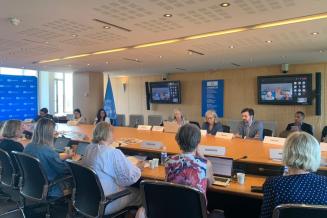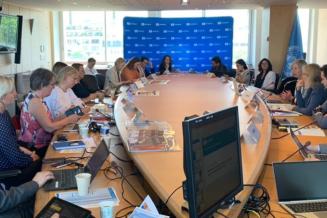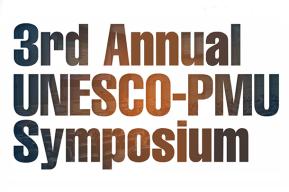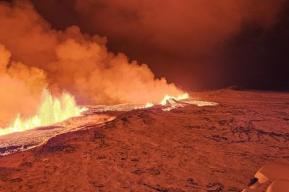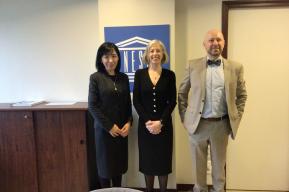News
Nordic countries reaffirm support to UNESCO’s key priorities
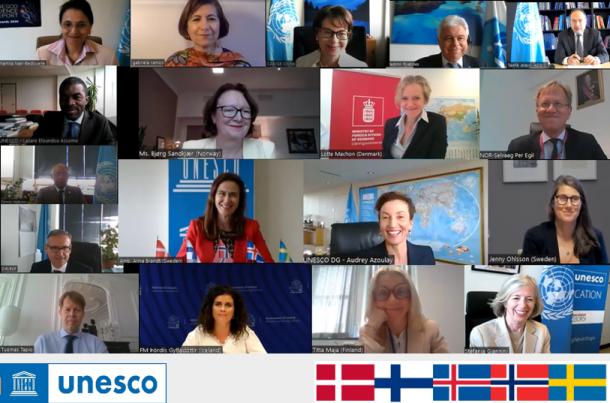
Last week, between Monday 30 May and Friday 3 June 2022, the five Nordic countries (Denmark, Iceland, Finland, Norway and Sweden) held a week-long partnership review, covering all programme areas of UNESCO, at the Paris Headquarters. Throughout the week, the Nordic countries reaffirmed their support and encouragement to UNESCO’s programme sectors, while providing constructive feedback on the way forward.
The week started with a high-level dialogue between ministerial representatives of the Nordic countries and UNESCO’s Director-General. It was an opportunity to discuss wide range of strategic issues such as strengthening the human rights-based approach and gender equality in UNESCO’s actions; the Organization’s focus on education in the context of the post-pandemic recovery and the results expected of the Transforming Education Summit (September 2022); UNESCO’s work to promote and uphold freedom of expression and the safety of journalists; as well as the Organization’s positioning within the overall reform of the UN and its overarching strategic processes.
The Director-General of UNESCO, Ms. Audrey Azoulay, declared that the meeting was a moment of convergence of our vision and priorities for UNESCO’s action and that UNESCO counts on the continuation of the strong support from the Nordic countries to achieve our common goals.
Effective multilateralism and international cooperation [is] more essential than ever. Here, UNESCO has an important role to play. Your work on fostering quality education has become even more critical after over two years of restrictive access to schooling for too many around the world. The same applies to promotion and protection of freedom of expression, artistic, cultural, and scientific freedom.
Sweden, Norway, Iceland and Finland are increasingly important donors to UNESCO over the last 10 years, with voluntary contributions having steadily increased over the years. In 2021, the voluntary contributions received from the 5 Nordic countries amounted to 28% of all voluntary contributions from governments to UNESCO. The meeting was an opportunity to discuss how best to maintain the level and to secure multi-year commitment in going forward with the partnership, especially given the current geo-political environment.
The Annual Nordic Joint reviews allows UNESCO and the five Nordic countries to strengthen the strategic nature of the partnership and promote long term, predictable cooperation by institutionalizing regular dialogues, and fostering trust and transparency. It has also been a forum through which the Nordic countries learn from each other, regarding the wide breadth and depth of the work of UNESCO and partnership modalities. UNESCO encourages its donors to engage with the Organization through annual reviews, an important accountability measure, which offers an opportunity to hold strategic dialogue, joint review of on-going cooperation and planning for the future.


